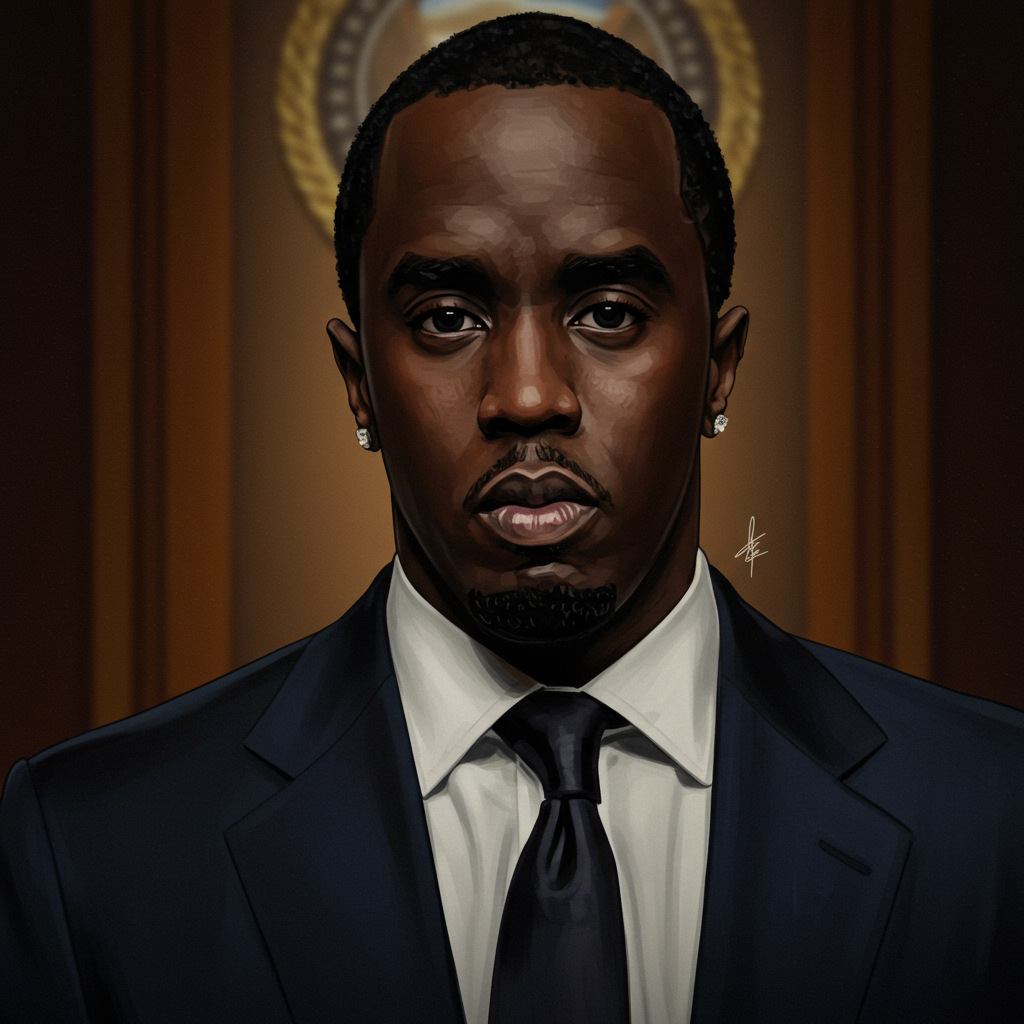NEW YORK — In dramatic closing arguments, federal prosecutors asserted that Sean “Diddy” Combs operated a sophisticated “criminal enterprise,” leveraging his immense “power, violence and fear” to control victims and facilitate a wide range of illegal activities over two decades. The music mogul faces serious federal charges, including sex trafficking and racketeering conspiracy, to which he has pleaded not guilty. If convicted on the most serious counts, he faces a potential lengthy prison sentence, potentially life.
Assistant U.S. Attorney Christy Slavik led the prosecution’s lengthy presentation, framing Combs as the undisputed “leader” of this alleged organization, believing his “fame, wealth and power put him above the law” and that he simply “doesn’t take no for an answer.”
Throughout the seven-week trial in Manhattan federal court, which featured testimony from 34 prosecution witnesses, the government laid out evidence they argued formed a “road map” to conviction.
Combs, often appearing at ease during the proceedings, reportedly showed signs of discomfort as the prosecution detailed their case against him. The defense, which presented a short case and called no witnesses (Combs himself chose not to testify, a decision he stated was his own after consulting with lawyers, recognizing he had “everything to lose and nothing to gain”), is set to present its closing arguments, arguing that interactions were consensual and that Combs’ lifestyle, while potentially controversial, did not cross the line into federal crime.
Here’s a breakdown of the prosecution’s key arguments for each charge:
Racketeering Conspiracy: An Empire of Crime?
Prosecutors contended that Combs’ music and business empire served as a front for a criminal enterprise. To find Combs guilty of racketeering conspiracy, the jury doesn’t need to see traditional “mafia” structures but rather an agreement between Combs and others in his circle to commit two or more specific criminal acts over time. The prosecution listed eight categories of alleged crimes the enterprise engaged in or attempted:
Drug Distribution: Described as “straightforward,” prosecutors detailed how Combs and his staff allegedly procured and distributed numerous drugs, including cocaine, meth, ketamine, oxycodone, tusi, Xanax, MDMA, and GHB. These drugs were called an “essential ingredient” of the alleged “freak-off” parties, used to keep victims compliant and awake.
Forced Labor: Victims like ex-girlfriends Cassie Ventura and “Jane,” alongside former employees, were allegedly coerced into participating in grueling, multi-day events even when injured or unwilling. “This was work,” Slavik stated.
Kidnapping: Allegations included physically hauling former employee Capricorn Clark into a room for questioning and threats, and Combs forcing Clark to accompany him to confront rapper Kid Cudi.
Arson: Prosecutors linked Combs to a 2012 incident where Kid Cudi’s car exploded, citing Ventura’s testimony that Combs had threatened to blow up the car. (Note: While alleged, attempted arson claims were reportedly streamlined out of the jury instructions, not the indictment itself, for the jury’s deliberation).
Bribery: Evidence included Combs and his associates allegedly paying a hotel security guard $100,000 to obtain and suppress video footage of Combs assaulting Cassie Ventura in 2016.
Witness Tampering/Obstruction: Efforts were allegedly made to silence accusers, including a recorded call where Combs asked a tearful ‘Jane’ for her “friendship” after accusations surfaced.
The prosecution emphasized the crucial role of Combs’ “inner circle” – his staff, security, and assistants – acting as “loyal lieutenants” and “foot soldiers” who allegedly facilitated drug deliveries, monitored victims, covered tracks, and carried out his directives to maintain “his kingdom.”
Sex Trafficking: Coercion and Control
Prosecutors argued that “freak-offs,” “hotel nights,” or “wild king nights” were not consensual parties but instances of sex trafficking, even if victims sometimes participated initially or appeared to enjoy aspects while under the influence. The standard for conviction, Slavik explained, requires the jury to find Combs used “force, threats of force, fraud or coercion” to make a victim participate in commercial sex on just one occasion, knowing or recklessly disregarding their unwilling participation.
Cassie Ventura: Central to the case, Ventura dated Combs for a decade. Prosecutors outlined a “set playbook,” alleging she agreed to the first “freak-off” but was coerced into “hundreds” of subsequent encounters. Testimony described Combs forcing sex acts while she was ill or against her will, sometimes directing escorts, which was allegedly a “turn-on for him” but “humiliating for her.”
Key instances highlighted included a March 2016 event at the InterContinental Hotel, where Combs was caught on camera attacking Ventura. Prosecutors argued the violence was intended to make her compliant with his sexual demands. A hired entertainer testified seeing the attack and hearing slapping before Combs allegedly demanded Ventura resume the “freak-off.”
Threatening to release explicit videos of Ventura was presented as another form of coercion, allegedly forcing her participation after a flight from Cannes.
“Jane”: Prosecutors described Combs’ approach with this ex-girlfriend (2021-2024) as “carrots and sticks” starting with “love-bombing” followed by pressure for “hotel nights.” Slavik argued Combs used their leased home and covered rent payments as “leverage,” coercing her participation by fraud. Jane’s testimony revealed she accepted drugs “to make things easier” and didn’t want encounters to “feel too real,” despite appearing to enjoy some moments on video which prosecutors attributed to heavy drug use. Physical violence, including beating and choking Jane, was also alleged, with Combs reportedly forcing her to have sex with an escort after a severe fight.
Prosecutors countered the defense’s argument of consensual “kinky” activities by emphasizing the pattern of alleged force, threats, fraud, and coercion used by Combs regardless of any initial or occasional consent.
Transportation for Prostitution: Moving People for Sex
The government presented evidence for the two counts of transportation for prostitution (one for Ventura, one for Jane), alleging Combs arranged travel for individuals to engage in commercial sex.
Evidence included bank statements, airline records, hotel reservations, and communications showing Combs or his staff paid for flights and accommodations for alleged male escorts and others involved in the “freak-offs.” Prosecutors stated it “doesn’t matter” if the escorts or even the victims sometimes consented to some acts; arranging travel for the purpose of prostitution while allegedly using coercion against the victims constitutes a crime.
The Stakes and What’s Next
Prosecutors concluded their arguments by telling the jury that Combs had allegedly evaded accountability for two decades due to his power and influence. “That stops now,” Slavik stated, urging them to deliver justice.
The defense will now have its opportunity to present its closing arguments, likely focusing on the consensual nature of the relationships and challenging the prosecution’s interpretation of the evidence. Following a prosecution rebuttal, the judge will instruct the jury, and deliberations are expected to begin shortly thereafter.


